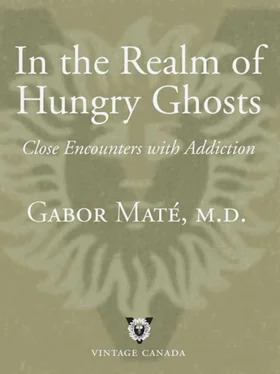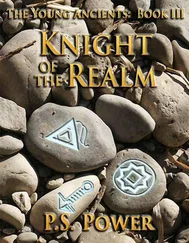Although we may believe we are acting out of love, when we are critical of others or work very hard to change them, it’s always about ourselves. “The alcoholic’s wife is adding to the level of shame her husband experiences,” says Anne, a veteran of AA. “In effect, she is saying to the addict, he is bad and she is good. Perhaps she is in denial about her addiction to certain attitudes, like self-righteousness, martyrdom or perfectionism. What if, on the other hand, the wife said to her husband: ‘I’m feeling good today, honey. I only obsessed about your drinking once today. I’m really making progress on my addiction to self-righteousness. How are you feeling?’ Wouldn’t that be a loving way to approach each other rather than one person trying to control another’s addiction? After all, if the developmental roots of the addiction process lie in insufficient attachment, recovery includes forming attachments. As with good parenting, real attachment relationships are based on truth. The truth is, a wife who thinks she does not have plenty of her own spiritual or psychological work to do, that is, one for whom another’s behavior becomes the central determinant of her own emotional/spiritual condition, is not in touch with the truth.”
Does this mean that friends, loved ones or co-workers can never speak to an addict about her choices? Far from it. It’s only that if such an intervention is to have any hope of success—indeed, any hope of not further poisoning the situation—it needs to be put into action with love, in a pure way that is not adulterated with judgement, vindictiveness or a tone of rejection. It requires clarity of purpose: Is my aim here to set my limits and to express my needs, or am I trying to change the other person? You may find it necessary, say, to tell your spouse or adult child about the negative way their actions affect you—not in order to control or blame them, only to communicate what you will accept and what you cannot and will not live with. Once more, you are fully entitled to take the steps you find necessary for your own peace of mind. The issue is with what spirit you approach the interaction.
If you want to point the addict toward more fulfilling possibilities in his life, drop the self-righteousness. The conversation needs to be opened not as a demand, but as an invitation that may be refused. It is helpful to acknowledge that the person had reasons for “choosing” the addiction, that it held some value for him. “It was your way of surmounting some pain, or helping you through some difficulty. I can understand why you went in that direction.” *35
I’m not describing a technique here: it is not what we do that has the greatest impact, but who we are being as we do it. Loving parent or prosecutor? Friend or judge? Any person who wishes to make a difference in the life of the addict should first conduct a compassionate self-inquiry. They need to examine their own anxieties, agenda and motives. “Purity and impurity belong to oneself,” the Buddha taught. “No one else can purify another.” Before any intervention in the life of another, we need to ask ourselves: How am I doing in my own life? I may not have the addiction I’m trying to exorcise in my friend or son or co-worker, but how am I faring with my own compulsions? As I try to liberate this other, how free am I—do I, for example, have an insistent need to change him for the better? I want to awaken this person to their genuine possibilities, but am I on the path to fulfilling my own? These questions will help to keep us from projecting our unconscious anxieties and concerns onto the other—a burden the addict will instinctively reject. Nobody wants to perceive himself as someone’s salvage project.
If it is crucial for addicts to proceed with a fearless moral inventory, it is no less useful for the ones close to them to do so. AlAnon, the self-help group for the relatives of alcoholics, points out that alcoholism is a family disease—all addictions are—and therefore the whole family needs healing. Addiction represents a family condition not just because the behaviours of the addict have an unhealthy impact on those around him, but more profoundly because something in the family dynamic has probably contributed—and continues to contribute—to the addict’s acting out. While his behaviours are fully his responsibility, the more people around him can shoulder responsibility for their own attitudes and actions without blaming and shaming the addict, the greater is the likelihood that everyone will come to a place of freedom.
A tremendous step forward, albeit a very difficult one, is for people who are in relationship with the addict not to take his behaviours personally. This is one of the hardest challenges for human beings—and that is precisely why it’s a core teaching in many wisdom traditions. The addict doesn’t engage in his habits out of a desire to betray or hurt anyone else but to escape his own distress. It’s a poor choice and an irresponsible one, but it is not directed at anyone else even if it does hurt others. A loving partner or friend may openly acknowledge his or her own pain around the behaviour, but the belief that somehow the addict’s actions deliberately betray or wound them only compounds the suffering.
Strange as it may seem, the hardcore drug users I work with are still shocked and tormented by a fellow addict’s all-too-predictable patterns. “I’m always there for Joyce, no matter what,” says Hal, a heroin and jib user I quoted in Chapter 2. “But every time my cash runs out, she’s off with someone else. She keeps borrowing money and I never see it again. It’s for food, she says, but it always ends going up her arm. How can she keep doing this to me?”
“I hear you complaining,” I reply, “that an addicted human being is behaving like an addicted human being. It feels bad, Hal, I know, but does it surprise you? Do you really believe she is doing it to you? ”
“I guess not,” Hal concedes. But it surprises him every time, and he takes it personally. In his heart he is still a child wishing that the world was different. He’ll keep riding the alternately sad and elated merry-go-round of his relationship with Joyce as long as he remains unable to integrate and accept the hurt that his parents could not love him unselfishly, the way he needed to be loved, and that, as a result, he has never learned to accept himself.

The addict’s childish behaviours and immature emotional patterns virtually invite people around him to take on the role of the stern parent. It’s not a genuine invitation and anyone who accepts it, no matter how well intentioned, will soon find herself resisted. No relationship can survive in a healthy form when either partner puts himself or herself in a position of being opposed and resented.
Partners, friends and family are wise to refuse an addict’s attempts to recruit them as guardians of his behaviour. Addicts will do this at times, as a way of shifting responsibility onto others. It’s a thankless task for those who shoulder it and doomed to failure. In my medical school days I often escaped into television addiction, mindlessly flipping channels without enjoying anything I watched, wasting precious hours and keeping myself awake late into the night. I finally struck on the bright idea of putting a tiny lock into the hole in the prong of the television plug, preventing it from fitting into the socket. I entrusted the key to Rae. “Under no circumstances should you give me the key,” I instructed her, “no matter how much I whine, cajole, promise, pester or beg.” The inevitable outcome was that I would whine, cajole, promise, pester and beg until Rae capitulated. After a few episodes of this she threw the key at my feet. “Your problem,” she said.
Читать дальше













